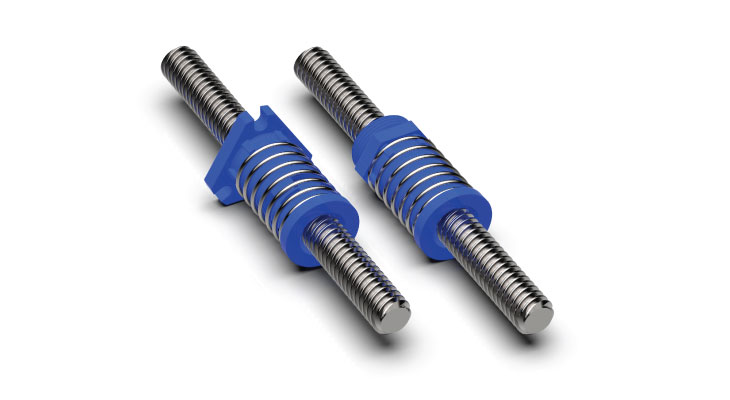Chemical Compatibility of a Helix Lead Screw Assembly with Plastic Nut

As you know, the performance of lead screw assemblies doesn't just rely on the type of screw used but on matching the given screw with the proper nut. At Helix, we offer standard nuts manufactured from various materials and custom-engineered from less conventional materials—generally speaking. However, our plastic nuts are said to be more efficient than nuts made from most other materials. Such plastic nuts - available in varieties including PEEK, polyester, acetal, Torlon, Vespel, PVDF, UHMW, and Ertalyte, among others - are designed to provide self-lubrication. This makes the lead screw assembly work more smoothly, operate more quietly, and work with excellent reliability.
Plastic nuts have become one of the top choices among design engineers due to their various pressure velocities and thermoplastic characteristics. Pressure velocity, or PV, is a measure of a material's ability to be dynamically loaded. As you know, specific plastic compositions perform differently under certain loads based on their characteristics - a consideration that one must keep in mind when selecting the correct type of nut for the screw assembly.
This brings us to another important consideration when it comes to nut selection - chemical compatibility. Chemical compatibility refers to whether or not particular materials are impacted by the environment in which the lead screw assembly is operating. For instance, will the assembly be negatively affected based on the environment? Is the assembly corrosion resistant? These are essential factors to keep in mind when selecting the particular lead screw to be used and the nut. Failure to recognize and consider the chemical compatibility could wind up costing you and your application further down the road.
So how do you know whether or not plastic nuts are chemically compatible with the intended application? At Helix, we've made it easy for you. Not only are our experienced professionals on hand to discuss your application in detail with you and pair you with the precise nut for your particular application. We also offer a reference guide concerning our acetal-blended lead screw nuts to help you understand whether or not this plastic variety will be chemically compatible with your application.
The information in the reference guide has been compiled from various literary references and sources to help you determine the performance of the plastic nut. However, it's worth noting that while this reference guide is intended to be a considering factor when it comes to plastic nut chemical resistance, it's not necessarily a guide that guarantees performance. Hence, it's recommended that you test products in their actual conditions to get a better feel for their performance and consult with our trained staff. You can access your reference guide here:
Chemical Compatibility Reference Guide
In this guide, you'll see that the chemical effect ratings are broken down into seven different ratings based on hundreds of other chemicals, all listed from A to Z. These chemical effect ratings consist of:
A: Excellent - There is little to no effect, and continuous use is recommended.
B: Good - There's a minor effect, with slight corrosion and/or discoloration.
C: Fair - Moderate effect, including softening, loss of strength, and/or swelling. Continuous exposure is not recommended.
D: Severe - Not recommended for any use.
NA: Information is unavailable.
1: Applicable up to 72 degrees Fahrenheit.
2: Applicable up to 120 degrees Fahrenheit.


